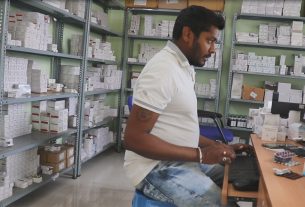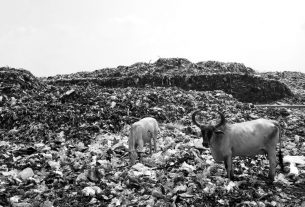Coconut waste, which is classified as dry waste, continues to find its way in landfills along with other wet waste due to inadequate disposal plants.
By Yashasvini Razdan
The technology for proper disposal of coconut husks has still not managed to establish its roots in the city, even after five years of the launch of the first and only coconut husk disposal plant in the city.
Situated on an elevated mound behind Freedom Park, this innovative facility which was initially started to dispose 40 tonnes of coconut waste is now a home to a pack of dogs, with passers-by urinating near the entrance.

Mr. Satish, the manager of the facility, set up by CIPIL Resurge Private Limited in collaboration with the Bruhat Bengaluru Mahanagara Palike (BBMP), said that the project was started five years ago.“The plant has a capacity to shred seven tonnes of coconut waste everyday but we get only 2-3 tonnes,” he said.
The shredded coconut husk is converted into briquettes which are then sold off to hotels and restaurants for six rupees per briquette. These places use them as fuel for the cooking furnaces.

Mr. Satish added that it is the only facility of its kind in the city and yet it gets coconut waste only from the nearby areas. He said, “We get the waste only from Gandhinagar, Cubbon Park and other nearby areas.”
In spite of being functional for five years, the city residents are not aware of this plant and continue to rely on the landfills for disposal of coconut waste. Murthy, a coconut seller on Nagavarapalya Road said, “The BBMP truck comes and collects the coconut waste.”
Gubi, the supervisor of a Dry Waste Collection Centre in Jivan Bhima Nagar said that the coconut waste is segregated from the other waste and sent to the landfill in Bellahalli.
BBMP Inspector for Solid Waste Management (SWM), Mr. Veeraya confirmed the above statement. He said, “The coconut waste is sent to Bellahalli quarry for disposal.”
Although BBMP’s website classifies coconut waste as dry waste, the Chief Executive Engineer of SWM, BBMP, Mr. Vishwanath said, “The coconut waste is categorized as wet waste and is therefore sent to the quarry for disposal.”
Sandeep Anirudhan, an environmental activist, explained that the method of dry waste collection needs to be improved. He said that the laws for waste collection lie in the grey areas. Most of the waste, whether it is sanitary, dry, hospital or the waste from abattoirs, gets dumped into the quarries.
“The waste needs to be properly segregated first. There are many coconut sellers in the city who sell the coconut husks to private entities. These entities form an informal sector that is largely responsible for garbage collection,” he said.
Mr Vishwanath said that the BBMP was contemplating on setting up more of the coconut husk shredding facilities. He said, “This is a very excellent initiative which cannot be seen anywhere and hence we should promote it. I will speak to person-in-charge and ask him to mail the proposals to open more coconut disposal plants like this.”
“The BBMP needs to incentivise the informal sector. The dry waste collection in the informal sector is extremely organised as they earn their living by recycling this waste. Secondly, since the BBMP cannot reach into every part of the city, they should schedule public consultations regarding waste disposal with experts,” added Anirudhan.





Thank you for the great info! I would not have gotten this otherwise!